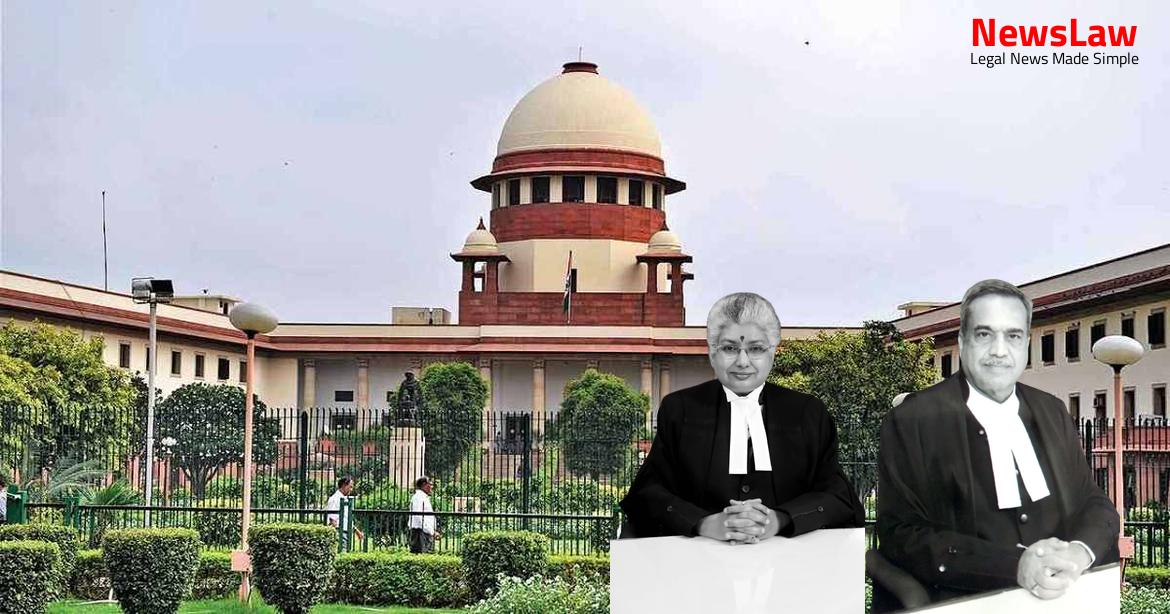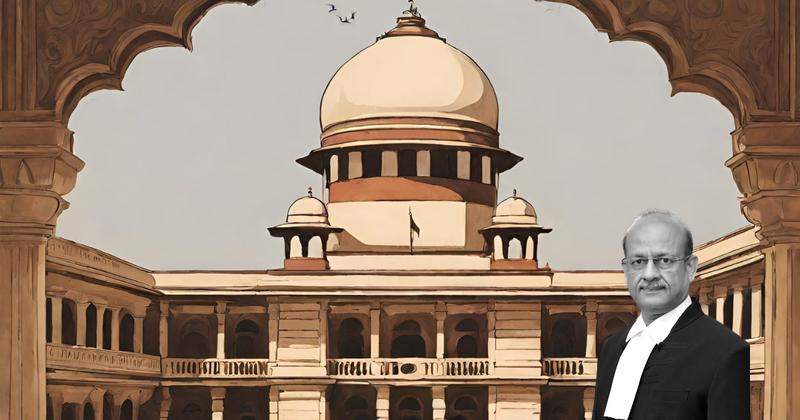Explore the detailed legal analysis of bail decisions in a recent case review, focusing on the importance of recording reasons in judicial orders and considering critical factors such as criminal antecedents. Understand the role of judicial discipline in ensuring fair and just bail determinations. Stay tuned for a deep dive into the court’s approach to evaluating bail applications.
Facts
- The original informant, who is the younger brother of the deceased and also an injured eye witness, has filed an appeal against the High Court’s decision to release the accused on bail.
- The Sessions Court had previously noted that the accused had actively participated in the heinous offence, and therefore, bail was not justified considering the gravity of the case.
- The respondent No.2 had filed a bail application under Section 439 Cr.P.C. in the High Court, where bail was granted without providing definitive reasons or considering the seriousness of the offences, including murder.
- The High Court’s decision to grant bail was based on accepting the submissions of the petitioner’s counsel, without adequately weighing the facts and circumstances of the case.
- Shardanand Bhagat succumbed to a bullet injury during treatment, leading to Section 302 IPC being added to the case.
- Ramawatar Bhagat’s bail application was rejected by the Sessions Court due to forming an unlawful assembly and involvement in Shardanand Bhagat’s killing.
- The appellant, younger brother of the deceased, lodged an FIR against all accused for various offenses including assault and murder.
- The accused, armed with lethal weapons, were cutting bamboos at the informant’s Bamboo Clumps on the day of the incident.
- When co-villagers assembled, the accused fled the scene.
Also Read: Ruling on Circumstantial Evidence in Murder Case
Arguments
- The High Court did not appreciate the distinct features of the case of co-accused Shashi Bhushan Bhagat
- The High Court did not consider the fact that the respondent No.2 was previously an accused in a double murder case
- The reasons for releasing the accused on bail were not sufficiently justified as per established principles by the Supreme Court
- Citing precedent cases such as Ramesh Bhavan Rathod Vs. Vishanbhai Hirabhai Makwana and Mahipal Vs. Rajesh Kumar to support the argument against the High Court’s decision
- The High Court’s decision was contrary to law as per recent rulings like Bhoopendra Singh Vs. State of Rajasthan
- The High Court’s decision seemed to be influenced by parity with another co-accused, which was not appropriate given the differences in their cases
- The appellant’s counsel argued that the High Court erred in releasing the respondent No.2 on bail in a case involving the killing of one person
- The High Court overlooked the accused’s criminal antecedents and did not provide sufficient reasoning for granting bail
- The High Court’s decision lacked detailed reasons and did not consider relevant bail considerations as laid down by the Supreme Court in previous cases
- The High Court did not consider the fact that the respondent accused is pressuring the informant to withdraw the trial or turn hostile.
- The respondent No.2 has been charge sheeted for serious offenses including murder under IPC sections 147, 148, 149, 302, 34, and 447.
- The State argues that the severity of the charges should prevent the respondent from being released on bail.
- The respondent’s counsel argues that the High Court’s decision to grant bail was appropriate considering all factors.
- The respondent’s involvement in previous cases was disclosed to the Court and is discussed in the impugned order.
- The respondent is a 70-year-old senior citizen with health issues and claims innocence in relation to the alleged offenses.
Also Read: Challenging Legal Presumptions in Negotiable Instrument Cases
Analysis
- Recording of reasons in judicial orders ensures scrutiny and adherence to objective standards.
- The High Court erred by not considering relevant material for the accused’s bail determination.
- Not addressing the criminal antecedents of the accused was a critical error by the High Court.
- Judicial discipline requires recording reasons for granting or denying bail.
- Emphasis should be on judicious exercise of discretion, not whimsical decisions.
- Ignoring criminal history while granting bail is a serious oversight.
- The High Court did not provide any reasoning for releasing the accused on bail, a significant flaw.
- The gravity and seriousness of the offenses alleged should have been considered for bail decisions.
- Judicial discretion in granting or refusing bail should be structured and not arbitrary.
- In the present case, the assessment by the High Court is contained in a single para without expressing opinion on the merits of the case.
- Factors weighed by the Judge in the rejection or grant of bail should be recorded in the order passed to adhere to open justice principles.
- Grant of bail involves the exercise of judicial discretion and needs brief reasons to justify the decision.
- The relevance of various considerations like the seriousness of the offense, impact on witnesses and society, and likelihood of tampering are highlighted in the judgment.
- Detailed examination of evidence may not be necessary while granting bail, but reasons for the decision are crucial to demonstrate application of mind.
- Orders refusing or granting bail without reasons may indicate non-application of mind and require intervention.
- In cases where bail has been earlier rejected, specific reasons should be provided for granting bail upon appeal.
- Emphasis is placed on giving brief reasons while granting bail to uphold the principle of open justice even though a detailed evaluation of facts is not required at that stage.
- The High Court did not consider the gravity, nature, and seriousness of the alleged offences.
- The respondent No.2 has a criminal antecedent and is a history sheeter.
- The respondent is involved in the double murder of the father and brother of the informant.
- The trial of these cases is at a crucial stage of recording evidence.
- There are allegations of pressurizing the informant and the witnesses.
- The judgment and order of the High Court releasing the respondent on bail is unsustainable.
Also Read: Legal Analysis Critique in High Court’s Quashing Order
Decision
- The High Court’s decision to release the respondent No.2 on bail has been quashed and set aside.
- The respondent No.2 is now required to surrender before the jail authority or the concerned Court immediately.
- The present appeal has been allowed, and the judgment succeeds.
Case Title: SUNIL KUMAR Vs. THE STATE OF BIHAR (2022 INSC 99)
Case Number: Crl.A. No.-000095-000095 / 2022



